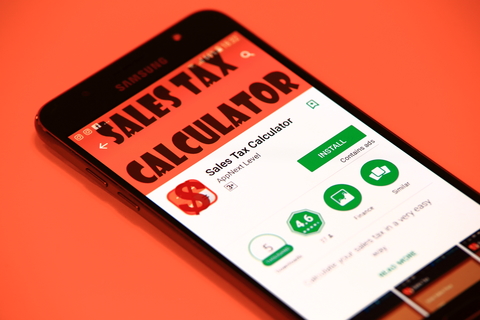 Sales tax is a cost imposed on a company’s customers for the goods and services it sells. It’s up to the company to collect the tax from these customers and remit it to the state. And they must file sales tax returns to report their sales and tax collections. There are about 10,000 different sales tax jurisdictions within the U.S., factoring in rates of the states and various localities (e.g., counties and cities).
Sales tax is a cost imposed on a company’s customers for the goods and services it sells. It’s up to the company to collect the tax from these customers and remit it to the state. And they must file sales tax returns to report their sales and tax collections. There are about 10,000 different sales tax jurisdictions within the U.S., factoring in rates of the states and various localities (e.g., counties and cities).
Rate changes for 2019
Sales tax rates have changed this year in some locations. Usually, the rates go up (for example, in Alabama in some cities, Colorado in some cities and counties, Louisiana in some parishes, and North Dakota in some cities). But don’t overlook rate decreases (e.g., lower sales tax on food and food ingredients in Arkansas).
If you have a point of sale (POS) system, make sure it’s been adjusted to reflect any rate changes this year.
Exemption changes
Sales taxes are imposed on various goods and services. But some goods and services are exempt from sales taxes. Each year, there are changes in what is and is not subject to sales tax. For example, feminine hygiene products are exempt from sales tax in Nevada effective January 1, 2019. Determine whether the goods and services you sell are subject to sales tax.
Rules for online sellers
Last June, the U.S. Supreme Court, in South Dakota v. Wayfair, Inc., confirmed that states have the right to require remote sellers to collect sales tax on transactions with their residents and remit the taxes to them. The decision also ‘okayed’ South Dakota’s exemption for “small sellers.” So sellers with no more than $100,000 in gross revenue or 200 in transactions within South Dakota are not required to collect and remit sales tax.
In the wake of this decision, many states began imposing sales tax obligations on remote sellers that did not meet their definition of small sellers (which has some variations in different states). The obligations in more states commenced on January 1, 2019. Florida and New Mexico, as well as the District of Columbia, have not yet said what it would do about sales tax on remote sales, so businesses within these locations should watch for any development.
Last year, a proposal was introduced in Congress (H.R. 6724) to bar states from imposing any sales tax obligation on remote sellers. As yet, nothing has been enacted.
Other changes
Arizona is now imposing a transaction privilege tax (TPT) on sellers, effective January 1, 2019. This tax is not paid directly by the customer; it is on the seller for the privilege of selling within the state. But as a practical matter, customers will pay as most sellers likely will pass along this cost to them.
Final thought
If all of this sounds confusing, you’re not wrong. You might want to use sales tax software, such as Avalara, to ensure that you get things right.


